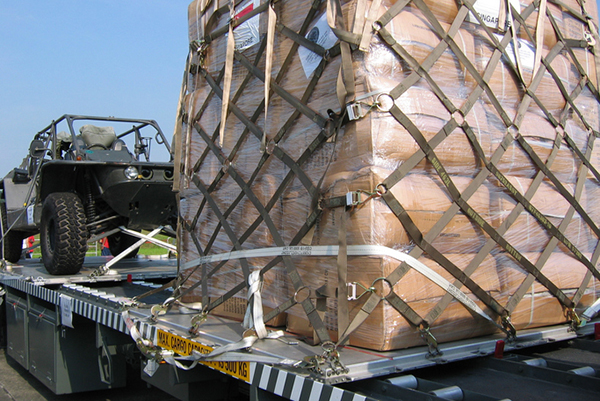Editor's Note: When the “Humanitarian Supply Chain” panel convenes at USC's 7th Annual Global Supply Chain Excellence Summit in August, one of the more engaging speakers will be Kathy Fulton, Executive Director of The American Logistics Aid Network (ALAN).
Earlier this year, she told us that ALAN has also responded with logistical support to overseas destinations and our own domestic emergencies. In this exclusive interview, she expands upon those insights.
Supply Chain Management Review: What are the greatest challenges you are facing this year?
Kathy Fulton: ALAN faces similar challenges as many other organizations – the uncertainty of demand caused by disasters, and the uncertainty of supply due to geography or market conditions. In disaster relief, you don't know when or where your help will be needed, or to what extent. It is hard to get good analytics or predictable demand when disasters by nature are unpredictable! And since we rely on the logistics business community to donate their services or expertise to fulfill our mission, there can be a great deal of variability depending on geography and market conditions.
SCMR: What kind of innovations are being employed to prevail over those challenges?
Fulton: Since we can't control the causes of disruption (and hence shape the demand), we focus on the challenges of supply. One way we are working to ensure available supply is to help businesses survive the disasters that affect them. We are focused on getting relevant, actionable information into the hands of the small and medium sized logistics services providers who don't have time or resources to dedicate to managing a full disaster or humanitarian response program. Later this summer we'll be launching our portal with information that can both help those businesses better prepare, but also provide them a snapshot of ways they can provide quick assistance to organizations providing direct disaster services.
SCMR: How are you promoting your efforts, and getting the word out?
Fulton: We are thankful for great partnerships with professional organizations across industry, government, nonprofit, and educational institutions (like USC). We also have terrific media partners like Logistics Management & Supply Chain Management Review who tell the story of the good works being done via ALAN's network.
*SCMR: How can humanitarian logistics attract new talent to the discipline?
Fulton: Humanitarian response allows employees and potential employees to see logistics activities, equipment, and services in a different light. Suddenly that truck isn't moving a load just so the company can bill their customer – it is hauling food so that disaster survivors can eat. That forklift isn't being monitored just to improve warehouse efficiency and boost profitability, it is loading clean water for those in shelters. So when a business makes humanitarian response a part of their corporate give-back their employees boast about it. I've had employees of some of our partner companies tell me how proud they were to work for a company that cares about their community and supports humanitarian causes. ALAN believes that every organization can participate in some way – whether by donating services, expertise, or resources. Humanitarian supply chains need everything that commercial supply chains do – so why not leverage the knowledge and expertise that is already existing in our industry?
SCMR: What kind of humanitarian crisis are you concerned about in the future?
Fulton: We spend a lot of time considering what will happen in truly catastrophic scenarios, where something destroys not just the supply of commodities, but also the capability to produce more of those supplies. Think of a long duration power outage in a key manufacturing or logistics hub and how that would affect today's global supply chains. Most of the recent disasters have disrupted the demand nodes, or only temporarily stopped production of a resource. We think about the really scary situations – the things that are uncomfortable to talk about. Hopefully we'll never have to respond to them, but we believe that they can't be ignored – and even trying to plan for them helps make us all better prepared for the “easy” disasters.
SC
MR


Latest Supply Chain News
Latest Podcast

 Explore
Explore
Education News
- Looking back at NextGen 2024
- DEI remains a force in business success
- Understanding organized labor’s impact on our supply chain
- The 3 types of cyberattacks affecting global supply chains
- NextGen Supply Chain Conference set for October 21-23
- Penske, NTT Data, CSCMP study finds change still dominates 3PL market
- More Education
Latest Education Resources

Subscribe

Supply Chain Management Review delivers the best industry content.

Editors’ Picks





